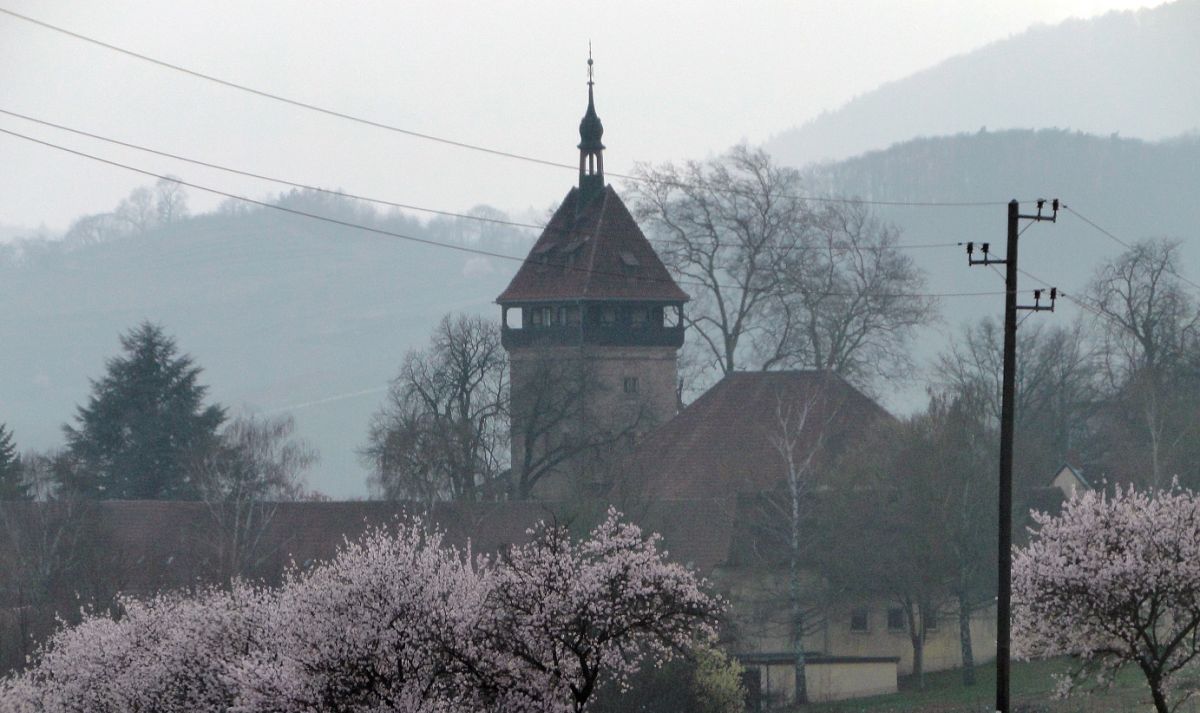The Institute for Vine Breeding Geilweilerhof in Siebeldingen (Palatinate-Germany) emerged from two institutions that were founded independently of each other in the 1920s. In 1924, August Ludowici (1866-1945), the last private owner of the Geilweilerhof, gave vineyard land to the Palatinate Winegrowers' Association free of charge. Two years later, the agricultural councillor Peter Morio (1887-1960) founded the "Rebenzüchtung" (vine breeding) branch of the Bavarian State Institute for Viticulture, Fruit Growing and Horticulture in Würzburg on this property. In the same year, the Kaiser Wilhems Institute for Breeding Research was founded in Müncheberg (Mark Brandenburg) by Dr Erwin Baur (1875-1933), and Dr Bernhard Husfeld (1900-1970) was put in charge of the vine breeding department. Both Peter Morio and Bernhard Husfeld subsequently worked intensively on breeding grapevine varieties that were resistant to phylloxera and the two mildew species. After the Second World War, Husfeld moved his breeding material to the Geilweilerhof. The company he founded leased the farm and established the "Research Institute for Vine Breeding". Husfeld presided over the institute until 1970, after which his long-time assistant Dr Gerhardt Alleweldt (1927-2005) took over.

Alleweldt headed the Geilweilerhof branch until 1995, when he was succeeded by Prof. Dr. Reinhard Töpfer. Since 1996, special efforts have been made to inventory, identify, describe and evaluate old landraces in German-speaking countries. In the herbarium, rare and already almost extinct varieties are reactivated and thus secured. In the VIVC (Vitis International Variety Catalogue) with more than 20,000 entries, almost all grape varieties of the world are recorded with their synonyms. The Institute has a high level of scientific competence in the reliable molecular genetic identification of grapevine varieties. The identification of the parents of Müller-Thurgau should be mentioned in this context.
Many new varieties have been created at the Institute, some of them very successful. These included the varieties Bacchus, Calandro, Carmina, Castor, Comtessa, Diana, Domina, Dr. Deckerrebe, Felicia, Forta, Geilweilerhof GA-48-12, Gloria, Madeleine Sylvaner, Morio-Muskat, Noblessa, Optima, Orion, Phoenix, Pollux, Sirius, Staufer, Reberger, Regent and Villaris. After some changes in the structure of responsibility and ownership, the Julius Kühn Institute (JKI) was finally founded in 2008, to which the Institute for Grapevine Breeding Geilweilerhof also belongs.
Image: By Dr Manfred Holz - Own work, CC BY-SA 3.0, Link
Voices of our members

The Wine lexicon helps me to keep up to date and refresh my knowledge. Thank you for this Lexicon that will never end in terms of topicality! That's what makes it so exciting to come back often.
Thorsten Rahn
Restaurantleiter, Sommelier, Weindozent und Autor; Dresden